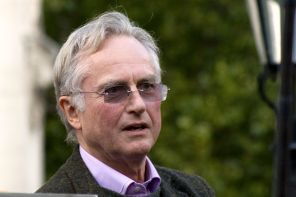Richard Dawkins is a man who pummels others for the inconsistencies of their beliefs. That, perhaps, is why it’s so interesting to read Dawkins’ recent interview with Isaac Chotiner, and see how inconsistent and uncertain Dawkins himself can be. The result might not please certain atheists, but it makes Dawkins out to be, well, a human being.
If you’ve ever wondered what Dawkins thinks about Jews winning Nobel Prizes, or whether someone who so fetishizes empirical evidence is even capable of reading novels (“I never quite understood why you would read fiction to understand the human condition”), then this is the interview for you.
A couple of gems:
Isaac Chotiner: One thing I’ve noticed is that you often use the argument that religion is something that we choose, unlike, say, race or sexual orientation. I wonder what the word ‘choose’ means if you go to, say, a poor, religious, Muslim country.
Richard Dawkins: You don’t really get much choice…I would like to find a way in which people in Saudi Arabia could learn that they can be something other than a Muslim. Some people may not realize this. Of course, there is the problem that you can get in trouble or get stoned.
IC: Small side effects.
In the past, Dawkins has made blanket statements about the Muslim world without regard to politics, colonial history, the stifling effectof petropolitics, or, you know, any other sort of context. Do we have some admission here that religious beliefs are shaped by more than intellectual free will and faith?
Maybe, maybe not. But Chotiner is ready with some follow-ups. In regard to Dawkins’ tweet about Muslims winning fewer Nobel Prizes than the scholars of Trinity College, Cambridge:
RD: That was unfortunate. I should have compared religion with religion and compared Islam not with Trinity College but with Jews, because the number of Jews who have won Nobel Prizes is phenomenally high.
IC: OK, but what do you make of that?
RD: Race does not come into it. It is pure religion and culture…
IC: I still want to know what you draw from this. Do you think the Torah is more progressive than the Koran?
RD: No, I doubt it. I don’t think that.
IC: So then what?
RD: I haven’t thought it through. I don’t know.
Did Richard Dawkins just say that a religious tradition can contribute to producing better scientists? I’m pretty sure he just did. More amazingly: did Richard Dawkins just say I don’t know?
I don’t mean to sound critical: throughout the interview, Dawkins comes across as a thoughtful listener, open to examining his own points, and even, perhaps, open to seeing some nuance in a tricky set of issues. The shame is not that he’s a bit inconsistent. The shame is that we don’t see this side of him more often.




